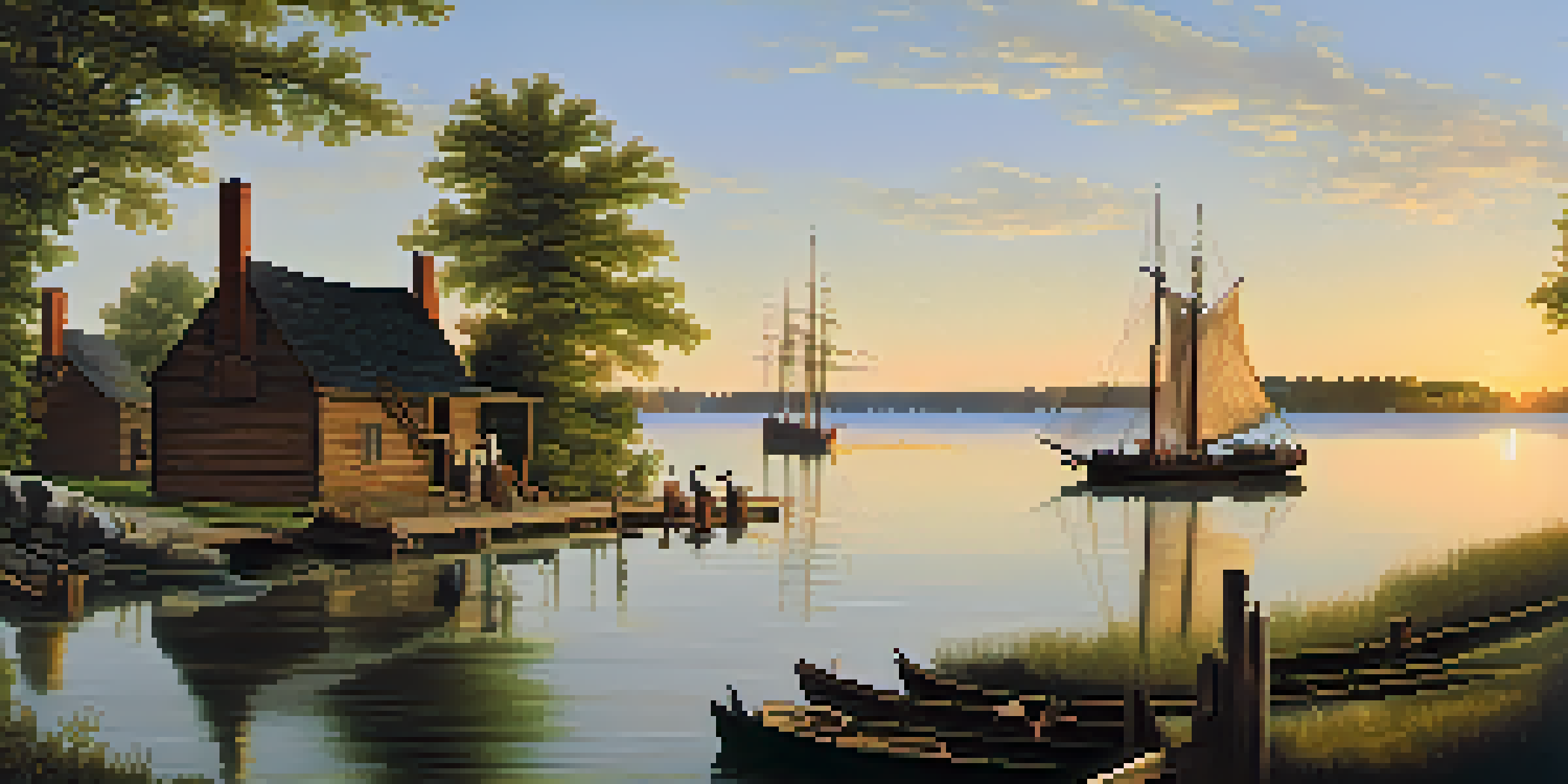The Founding of Detroit: A Look at Its 1701 Origins and Impact

The Vision Behind Detroit's Founding in 1701
In 1701, French explorer Antoine Laumet de La Mothe, sieur de Cadillac, founded Detroit with a vision of creating a vital trading post. This strategic location along the Detroit River was poised to connect the Great Lakes and the interior of North America. Cadillac aimed to establish a settlement that would not only foster trade but also assert French influence in the region. The founding of Detroit marked the beginning of a cultural melting pot that would shape the city’s identity for centuries to come.
The Role of the Detroit River in Early Settlement
The Detroit River played a crucial role in the early development of the city, serving as a key transportation route for goods and people. It allowed for easy access to both the Great Lakes and the St. Lawrence River, facilitating trade with Indigenous tribes and European settlers alike. This waterway became the lifeblood of the settlement, enabling Cadillac and his followers to flourish in a previously unclaimed territory. As a result, the river not only shaped commerce but also the very fabric of Detroit's community.
Detroit's Strategic Founding
Founded in 1701, Detroit was envisioned as a vital trading post connecting the Great Lakes and asserting French influence in North America.
Challenges Faced by the Early Settlers of Detroit
Despite its promising beginnings, Detroit's early settlers faced numerous challenges, including harsh weather conditions and limited resources. The region's cold winters tested the resilience of the small community, while conflicts with Indigenous tribes occasionally threatened their safety. Additionally, the settlers had to navigate the complexities of establishing governance and infrastructure in a new land. These challenges ultimately forged a strong sense of community among the residents, who banded together to overcome adversity.
Cultural Influences in Early Detroit
The cultural landscape of early Detroit was rich and diverse, influenced by French, Indigenous, and later British settlers. French customs and traditions laid the groundwork for the city’s early social fabric, from cuisine to language. As more settlers arrived, the blend of cultures contributed to a unique identity that would evolve over the years. This cultural amalgamation not only shaped Detroit's community spirit but also set the stage for its future growth.
Cultural Melting Pot Emergence
The early settlers of Detroit established a diverse cultural landscape, blending French, Indigenous, and British influences that shaped the city's identity.
The Growth of Detroit in the 18th Century
As the 18th century progressed, Detroit began to grow steadily, becoming a significant military and trading outpost. The construction of Fort Pontchartrain and other key structures solidified its importance in the region. This growth attracted more settlers and traders, spurring economic development and cultural exchange. By fostering relationships with Indigenous tribes, Detroit established itself as a crucial hub of activity in the Great Lakes area.
Impact of Detroit’s Founding on Future Generations
The founding of Detroit in 1701 set the stage for its transformation into a major American city. As it evolved, Detroit became synonymous with innovation, particularly during the Industrial Revolution. The city’s early emphasis on trade and commerce laid the groundwork for a booming economy that would attract waves of immigrants. This legacy continues to influence Detroit's identity, as it remains a focal point of cultural and economic activity in the Midwest.
Legacy of Resilience and Growth
The challenges faced by early settlers fostered a strong sense of community, laying the foundation for Detroit's transformation into a major American city.
Detroit Today: Echoes of Its 1701 Foundations
Today, Detroit's rich history is evident in its architecture, culture, and vibrant communities. The city's founding principles of commerce and collaboration still resonate, driving initiatives aimed at revitalization. Modern Detroit honors its past while looking toward the future, fostering innovation in fields like technology and automotive engineering. The spirit of resilience that characterized the early settlers continues to inspire residents as they navigate the challenges of the present.
Conclusion: The Lasting Legacy of Detroit’s Founding
The founding of Detroit in 1701 marked a pivotal moment in American history, establishing a city that would grow into a cultural and economic powerhouse. The challenges and triumphs of early settlers laid the groundwork for a community that values diversity and resilience. As Detroit moves forward, it carries the legacy of its founders, reminding us of the importance of adaptation and unity in the face of change. The story of Detroit is not just a reflection of its past but a beacon for its future.